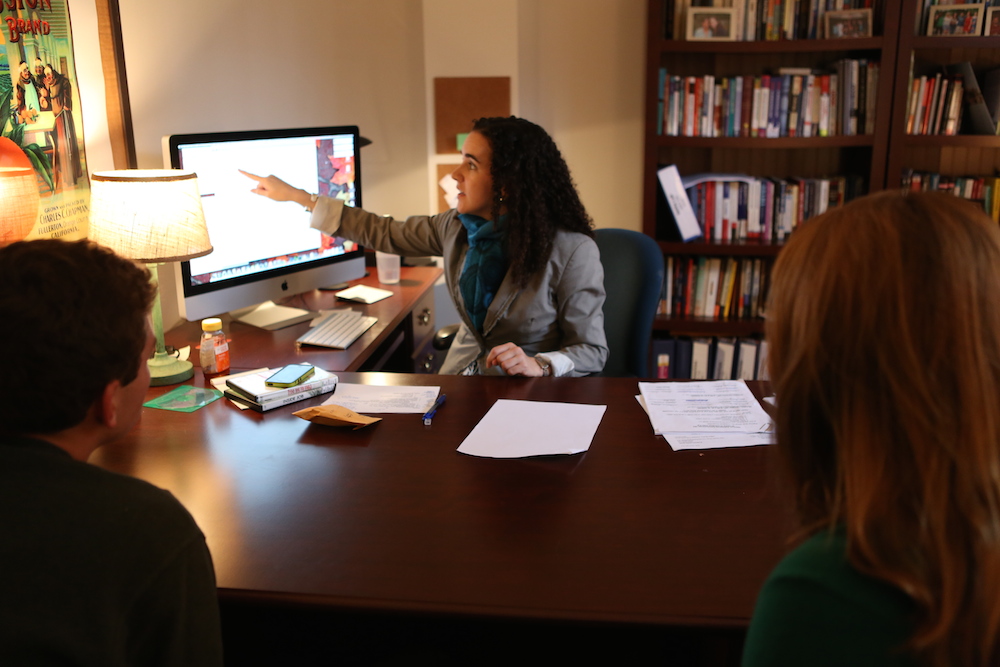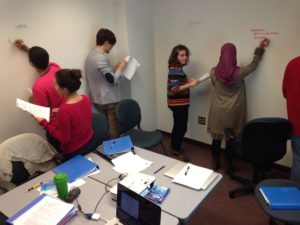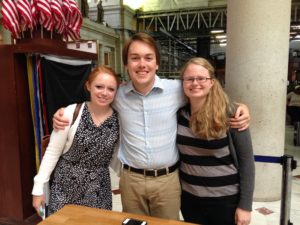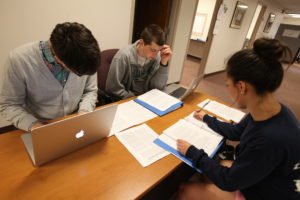What We Do

The Social Networks and Political Psychology (SNaPP) Lab was founded in 2013 at William & Mary. We work collaboratively on several different research projects that share a motivation in exploring the biological, psychological, and social underpinnings of political behavior.
- Learn more about our active research projects.
- Meet the current lab members.
- Read about the benefits of being in the lab from alumni.
- Find out what happens in lab “boot camp”.
What does it mean to be a collaborative research lab in the social sciences?
We meet every Wednesday evening from 5-7 p.m. in the Social Science Research Methods Center, with “Boot Camp” for new members from 4-5 p.m.. What we do in that time varies from week to week, but typical activities include reading and discussing recent primary research articles related to our interests; talking about the process of research – from generating research questions to designing studies to writing grants – in order to strengthen our projects; or providing feedback to each other on individual or team research projects.

In addition to our weekly lab meetings, new members of the lab take part in a “boot camp” where they are instructed in the fundamentals of conducting the kind of research done in the lab. These lessons include best practices for literature reviews, research design, data management, and data analysis. Each year, students simultaneously work on an independent portfolio or research project while contributing to an ongoing project in the lab related to Professor Settle’s active research agenda. There are typically two-three teams working on group projects at a given time.

The goal of the SNaPP Lab experience is to enable students to develop the analytical, methodological, and writing skills necessary to successfully execute a high-quality independent research project before they graduate. Students also receive guidance in planning for and attaining post-graduation opportunities (job, graduate school, fellowship, etc.) that utilize those skills. Equally important are the opportunities to work closely with faculty members outside of the classroom environment and interact with other students interested in data analysis and research. Past students have had the opportunity to attend and present their research at a variety of venues, including the Midwest Political Science Association, the American Political Science Association, and the International Society for Political Psychology meeting.

